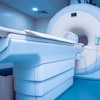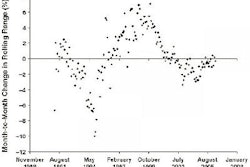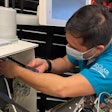Despite intense lobbying efforts in recent months, medical imaging advocates were unable to persuade the U.S. Congress to make adjustments to the Deficit Reduction Act (DRA) of 2005 before it adjourned over the weekend. The DRA's provisions cutting Medicare reimbursement for outpatient imaging procedures will take effect as mandated on January 1, 2007.
The Senate and House of Representatives failed to take action on two bills (H.R. 5704, S. 3795) that would have delayed the DRA's technical component cuts for outpatient imaging services for at least two years, pending a study by the Government Accountability Office (GAO) into the effect of the cuts on patient access to care.
There was some good news, however, for healthcare providers, as Congress rejected a 5% reduction in the Medicare Physician Fee Schedule.
Disappointment despite bipartisan support
Speaking with AuntMinnie.com, Josh Cooper, director of congressional relations for the American College of Radiology (ACR), summed up the Reston, VA-based association's reaction to Congress' lack of action in one word -- "disappointment."
"We had worked very hard and thought we made a very good case to Congress on the process level, by which the DRA cuts were enacted -- that being very little process, if anything -- without any analysis on how it would affect patient care," he said.
Cooper said the ACR leadership will meet to decide whether to pursue a delay or appeal of the reductions with the Democrat-controlled 110th Congress when it convenes in January. "The important thing is that we make sure that whatever we do, we keep access available to seniors for timely imaging services," Cooper said.
Whether opponents of reimbursement reductions have more success with the issue with the next Congress is uncertain. Copper said there was "a tremendous amount of bipartisan support as indicated by both bills in the House and Senate," in the Republican-led 109th Congress.
House Resolution 5704 was introduced by U.S. Rep. Joe Pitts (R-PA) in June. Senate Bill 3795 was introduced in August by U.S. Sen. Gordon Smith (R-OR) and Sen. Jay Rockefeller (D-WV).
"I believe that first indications are that they (Democrats) are just as worried about budget implications of any type of delay or appeal, as the Republicans were," Cooper said. "We have our work cut out for us to make sure that whatever we propose is paid for with a reasonable policy."
"Deeply disappointed"
In a letter posted on its Web site on December 8 to members, ACR Chair Dr. Arl Van Moore Jr. wrote that he was "deeply disappointed that Congress was unable to delay this DRA policy that many Capitol Hill lawmakers readily admitted was enacted through a closed-door process without any thought to how this policy will affect patients' timely access to medical imaging services."
He added that the ACR "will continue to work to enact responsible imaging reimbursement policies that are based on quality and safety for our patients."
The Access to Medical Imaging Coalition (AMIC) earlier this month ramped up its efforts to delay imaging reimbursement cuts in the DRA. The Washington, DC-based lobbying group of physicians, patients, and providers ran advertisements in Roll Call and Congress Daily that counted the days until initiation of the DRA in January. The campaign also urged representatives and senators to pass the Access to Medicare Imaging Act, which would have delayed implementation of DRA reductions in imaging reimbursement for two years.
By Wayne Forrest
AuntMinnie.com staff writer
December 11, 2006
Related Reading
DRA 2005: The potential impact on the outpatient imaging market, December 11, 2006
AMIC steps up efforts for DRA delay, December 5, 2006
AMIC vows to press case for DRA delay, November 9, 2006
Judge dismisses DRA lawsuit, November 7, 2006
ACR remains optimistic as clock winds down on DRA implementation, October 24, 2006
Copyright © 2006 AuntMinnie.com



















